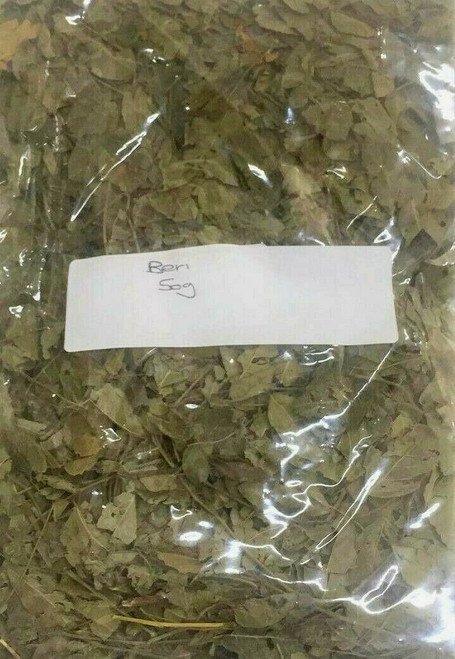Bael Bilva leaves 25g Aegle Marmelos
Bael (Aegle marmelos), also known as Bilva, is a sacred tree in various cultures, especially in Hinduism. Its leaves, known as Bael or Bilva leaves, are highly revered and have both religious and medicinal significance.
Appearance
- Shape: The leaves are typically trifoliate, meaning they have three leaflets that are connected to a single stem. The leaflets are oval or lance-shaped, with a slightly serrated margin.
- Color: The leaves are bright green and have a glossy texture when fresh. As they age, they might turn a darker green or even slightly yellowish.
Religious Significance
- Hindu Worship: Bael leaves are especially sacred in Hinduism and are commonly offered to Lord Shiva during prayers and rituals. The trifoliate structure of the leaves is believed to symbolize the three eyes of Lord Shiva, representing purity and spiritual awakening.
- Festivals: During festivals like Maha Shivaratri, devotees use Bael leaves in their rituals, as offering these leaves is considered highly auspicious.
Medicinal Uses
Bael leaves have been used in traditional Ayurvedic medicine for various health benefits:
- Digestive Health: The leaves are known for their ability to promote digestion and alleviate gastrointestinal issues like constipation, diarrhea, and indigestion.
- Diabetes Management: Some studies suggest that Bael leaves can help regulate blood sugar levels, making them potentially useful for managing diabetes.
- Anti-inflammatory Properties: The leaves are known for their anti-inflammatory effects, which can help reduce pain and swelling in conditions like arthritis.
- Respiratory Health: Bael leaves are also used in treating respiratory conditions like asthma, bronchitis, and the common cold due to their expectorant properties.
Preparation and Use
- Juice: Bael leaf juice is often consumed for its health benefits, particularly in managing blood sugar levels and promoting digestion.
- Poultice: A poultice made from crushed Bael leaves can be applied to wounds, burns, or skin infections for its healing properties.
- Infusion: An infusion or decoction of the leaves can be used to treat various ailments, including fever and respiratory issues.
Precautions
- Allergies: Some people might be allergic to Bael leaves, so it's advisable to perform a patch test before using them on the skin or consuming them.
- Pregnancy and Breastfeeding: As with many herbal remedies, it is recommended to consult a healthcare provider before using Bael leaves during pregnancy or breastfeeding.
Bael or Bilva leaves are deeply rooted in both spiritual practices and traditional medicine, valued for their symbolic significance and potential health benefits.








